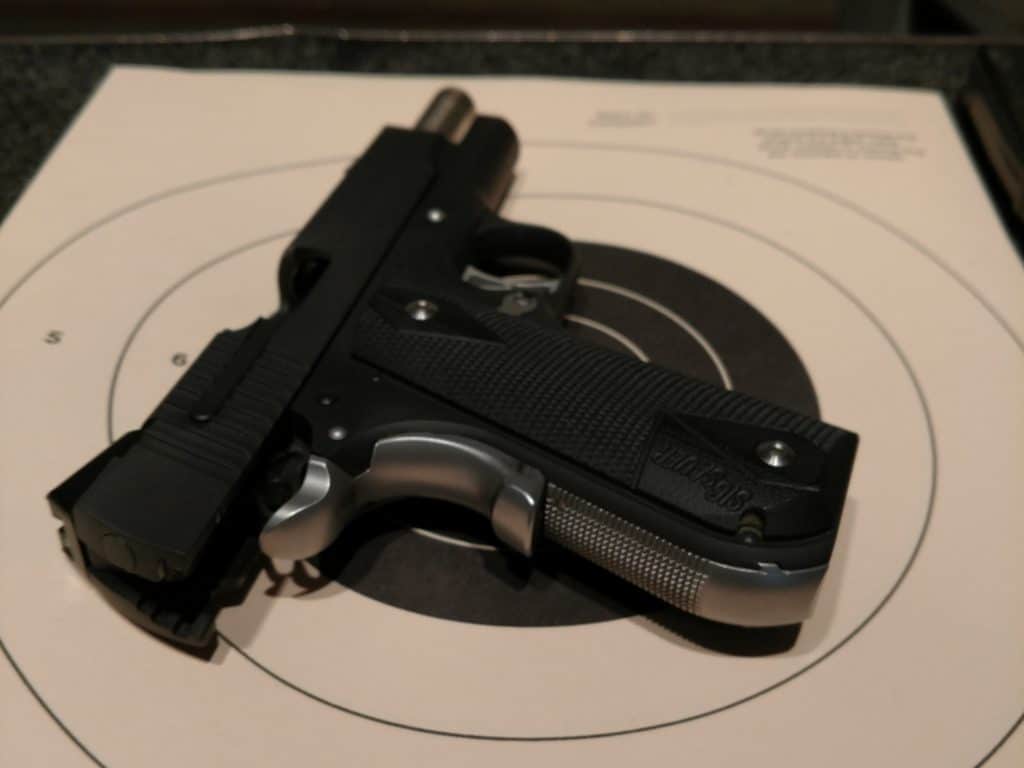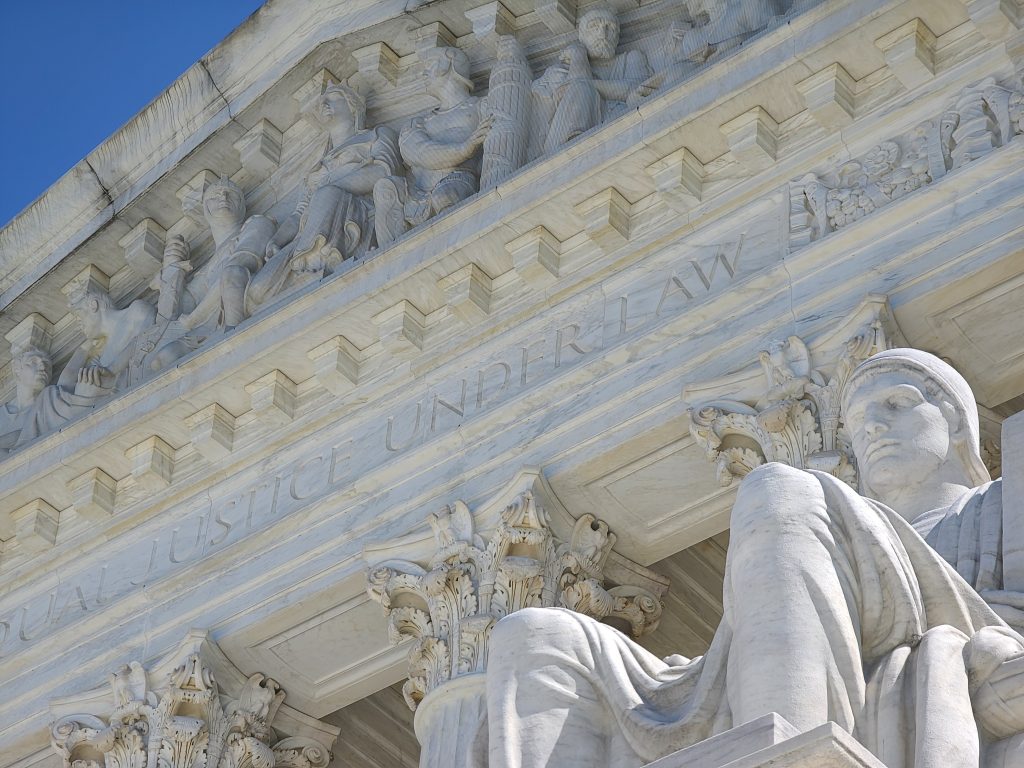We’ve extensively covered the spread of permitless gun-carry across the country. Ohio became the 23rd state to adopt it this week. But what we haven’t talked much about is how reforms to gun-carry laws have only moved in one direction.
Contributing Writer Jake Fogleman takes a closer look at the fact no state in recent history has moved from a more lenient law to a more stringent one. The momentum has all gone in the opposite direction. And it’s poised to continue that way for the foreseeable future.
The same can be said for the repeal of stun-gun bans. I take a look at how that fight informs the current fight over gun-carry laws too. And future fights in other areas of Second Amendment litigation.
Plus, Alan Beck joins the podcast to talk about his central role in dismantling stun-gun bans across the country.

Analysis: Gun-Carry Laws are Only Moving Towards Fewer Restrictions [Member Exclusive]
By Jake Fogleman
Last week the politics of gun carry hit a major milestone when, upon the signing of a permitless carry bill in Alabama, the policy of allowing legal gun owners to carry a concealed firearm without a permit became the most popular standard in the country. This week saw that trend continue with the adoption of permitless gun-carry in the state of Ohio after Governor Mike DeWine (R.) signed the bill into law Monday.
While his signing of the bill was not as balance-altering as his immediate predecessor, it did reveal something important about the growing political popularity of permitless gun-carry.
Until now, permitless carry legislation was a policy choice largely reserved for deeply-red states with comfortable Republican majorities in both chambers of the state legislature as well as control of the Governor’s mansion (Vermont was the main exception to this rule, but more on that later).
The policy swept through states with Republican trifectas like wildfire after 2010 but was rebuffed in states where Republicans either did not control both the legislative and executive branches (see the permitless carry bill vetoes in Pennsylvania and Louisiana) or did not enjoy comfortable enough majorities to push a bill through (e.g. permitless carry dying in the Florida legislature 3 years in a row despite Republican control and a Republican Governor).
Which brings us to Ohio. Republicans currently enjoy unified control of both the legislative and executive branches, but it remains a state with a reputation for swing-voters and a competitive Democratic party. It has trended Republican in recent years to be sure, but many campaign officials still consider it a battleground state, and it continues to send a split party Senate delegation to Washington.
DeWine also has something of a reputation for being a moderate on the issue of guns. Following a 2019 mass shooting in Dayton, Ohio, DeWine publicly called for certain gun-control proposals, including red-flag legislation and universal background checks. While the policies did not come to fruition, legislation like that is not typically supported in other Republican-governed permitless-carry states.
And yet he still signed permitless carry into law, making Ohio the second-most populous state to enact the policy after Texas. The fact that a governor with a history of support for gun-control legislation—in a populous state with multiple urban centers and a history of competitive elections—still felt compelled to enact permitless carry is further evidence that the political inertia of gun carry liberalization is continuing apace.
A similar effort in Georgia will provide yet another test case for this phenomenon. Though Georgia has long been considered a red state, it has become more competitive in recent years. Both Senators representing the state are currently Democrats, to provide an example. And yet it too seems poised to pass and sign into law a permitless carry bill this year.
This shift toward more competitive states being open to adopting permitless carry is likely indicative of a political calculation based on recent history. For Republican politicians, even the more moderate ones, there doesn’t seem to be much of a political price to be paid for supporting such laws.
To date, there hasn’t been a single state that has decided to repeal permitless carry, even in deep-blue Vermont where it has been the law of the land since 1777. Likewise, there hasn’t been a single instance of a “shall-issue” state choosing to revert back to the stricter “may-issue” standard after adoption either.
For all the initial criticism levied by gun-control groups–and even certain law enforcement organizations–about the impending chaos and danger that liberalized carry laws will bring, there hasn’t seemed to have been any sustained backlash after implementation. Nor has there been sufficient political will to overturn the policy in any state.
It’s certainly possible that a backlash may at some point occur. But the momentum behind gun-carry policy has only been pushing one way so far: toward fewer restrictions for gun owners who wish to carry a gun for self-defense.
Podcast: Interviewing the Lawyer Who Dismantled America’s Stun-Gun Bans [Member Early Access]
By Stephen Gutowski
Rhode Island’s statewide stun-gun ban was overturned by a federal court this week. It was the last of its kind, and the latest to fall in what’s becoming a systemic dismantling of the prohibitions across the country.
The effort to liberalize stun gun and taser laws wasn’t undertaken by any of the major gun-rights groups or civil-rights organizations. It hasn’t been backed by anyone with deep pockets. Instead, it’s been something of a passion project for a lawyer who started off with a $10,000 budget.
That lawyer is Alan Beck, and he’s our guest on this week’s episode of the podcast.
Beck describes what motivated him to get involved in stun-gun litigation. He also explains how a key 2016 Supreme Court decision added fuel to the fire which swept through multiple state and local bans.
He explained his strategy for tearing down the prohibitions and how that same strategy could foreshadow what’s possible for other areas of Second Amendment litigation. He also details how places like Hawaii have tried to push back against the courts striking down their stun-gun bans by imposing restrictions just short of prohibitions. And he says that’s exactly how states forced to give up their restrictive gun-carry laws could react.
Speaking of Hawaii, Beck has also filed a number of suits against that state’s outlier gun laws. The most famous of which is Young v. Hawaii where he was able to convince a lower court to toss the state’s total ban on open carry before being reversed at the Ninth Circuit. That case is now pending appeal at the Supreme Court. We talk about why Hawaii has similarly been neglected by most gun-rights groups despite having some of the strictest gun laws in the country.
Reload member Nathan Gorenstein also joins the show for a member segment. The former Philadelphia Inquirer editor shares how he became interested in guns, and how legendary gun designer John Moses Browning piqued his interest enough to write an entire book about him.
Plus, contributing writer Jake Fogleman and I discuss the latest state to adopt permitless gun-carry.
You can listen to the show on your favorite podcasting app or by clicking here.
You can also watch the video podcast on our YouTube channel.

Analysis: Disappearing Stun-Gun Bans Show the Effect of Post-Heller Supreme Court Diligence [Member Exclusive]
By Stephen Gutowski
This week saw the last statewide ban on stun guns and tasers struck from the books, which cemented the end of prohibitions on the less-than-lethal weapons as the top practical legacy of the Supreme Court’s Heller decision. It’s also an example of how the Court can defend its Second Amendment decisions.
Rhode Island was forced to give up its ban on Tuesday.
The ruling came after Massachusetts, Hawaii, New Jersey, Michigan, and Wisconsin had their total bans invalidated or repealed. Bans in cities such as Philadelphia, New Orleans, Tacoma, Baltimore, and Annapolis have faced the same fate.
This is, somewhat surprisingly, the result of the work of a single lawyer with a $10,000 budget. Alan Beck and a few friends were behind most of the cases that sacked the total taser bans across jurisdictions.
“I am overjoyed to overturn the electric arm bans of four states and several cities,” Beck told The Reload on Tuesday. “These rulings open the door to citizens having an effective less than lethal means of self-defense which is something which will save lives.”
Those rulings are also the only ones that represent a systematic dismantling of a series of laws based on the landmark Heller and McDonald rulings. Those rulings established the individual right to keep and bear arms in the specific context of personal ownership of handguns. But, to this point, it’s the ownership of stun guns that’s been recognized across the country as a result.
And that’s no coincidence. It’s the direct result of Supreme Court action. And it provides insight into what the Court will need to do if it wants to ensure any future precedents it sets on Second Amendment issues are followed.
In 2016, the Court unanimously ruled in Caetano that the Massachusetts Supreme Court was out of line when it upheld the state’s stun-gun ban. While the Court didn’t specifically speak to whether the less-than-lethal weapons are Constitutionally protected, it did knock down the argument stun guns weren’t protected because they were not in common use at the time of the founding.
The practical effect of this ruling was to eliminate one of the top defenses of stun-gun bans. That effectively forced the hand of lower court judges, who struck down the prohibitions even if they didn’t particularly like the Heller precedent.
Take Judge Willaim Smith, who just struck down the Rhode Island ban. He found the state’s total ban on stun guns “cannot survive a Second Amendment challenge” even at a lower level of scrutiny.
“The total ban of stun guns […] clearly lacks the required ‘substantial’ fit between the asserted governmental interest and the means chosen to advance those interests, and accordingly, violates the Second Amendment,” Smith wrote in his opinion.
This is despite the fact that in the same ruling, he included footnotes where he argued Heller’s “conclusion is not historically accurate, nor defensible as an example of Constitutional’ originalism.’” He attacked the landmark opinion as an “example of judicial activism or ‘living constitutionalism’ in as much as it reflected public sentiment dressed up in ‘law-office history.’”
Nevertheless, he concluded Heller is “the law of the land and binding on this Court,” and 2016’s Caetano went further in making stun-gun bans exceedingly difficult to uphold.
The Supreme Court is poised to take on a new Second Amendment issue with its upcoming ruling in NYSRPA v. Bruen: gun carry. If it strikes down New York’s restrictive “may-issue” concealed carry permit law, which allows government officials to deny permits to those they subjectively determine don’t have a “good reason” to need one, the Court will need to diligently follow up on that ruling if lower courts attempt to sidestep its intended outcome.
Stun-gun litigation provides further insight into how things may play out if the Court does strike down “may-issue” laws. The first thing to notice is the Supreme Court weighed in on the bans in 2016, and the last statewide ban was just tossed this year. That’s six years of legal action across the country to get rid of these laws even after it was clear they likely couldn’t stand up in court.
And there are a few cities and localities that still have them on the books even now.
Plus, Hawaii has employed a tactic likely to be used by current “may-issue” states if their concealed carry laws are struck down. After the state’s stun-gun ban was struck down, it sought to regulate the purchase of the devices. Now, Beck says, it’s also considering restricting where they may be carried.
States forced to abandon their “may-issue” carry laws will likely adopt the same approach. In fact, we’ve already seen it happen in Washington, D.C., which adopted one of the strictest carry permitting regimes in the country short of “may issue.” Many affected states will probably follow that example leading to protracted fights over those new regulations.
Additionally, gun-carry law litigation will likely be a heavier lift than stun-gun litigation. There’s certain to be more money for the cause since it more directly impacts the core mission of the country’s top gun-rights groups. However, it’s also likely to be far more controversial than stun-gun litigation and less likely to garner a unanimous decision from the ideologically-divided Court.
Still, if the legal fight against “may-issue” carry laws is as successful as the one against stun-gun bans, it will be a major win for gun-rights advocates regardless of how drawn out and complicated the tail end of it becomes.
That’s it for now.
I’ll talk to you all again soon.
Thanks,
Stephen Gutowski
Founder
The Reload






